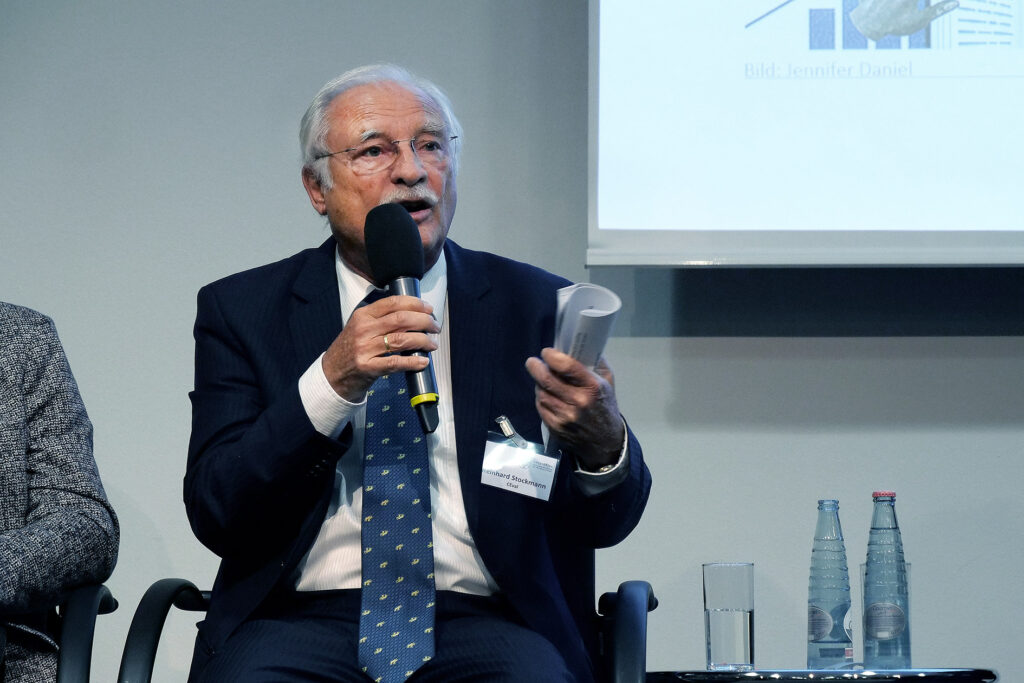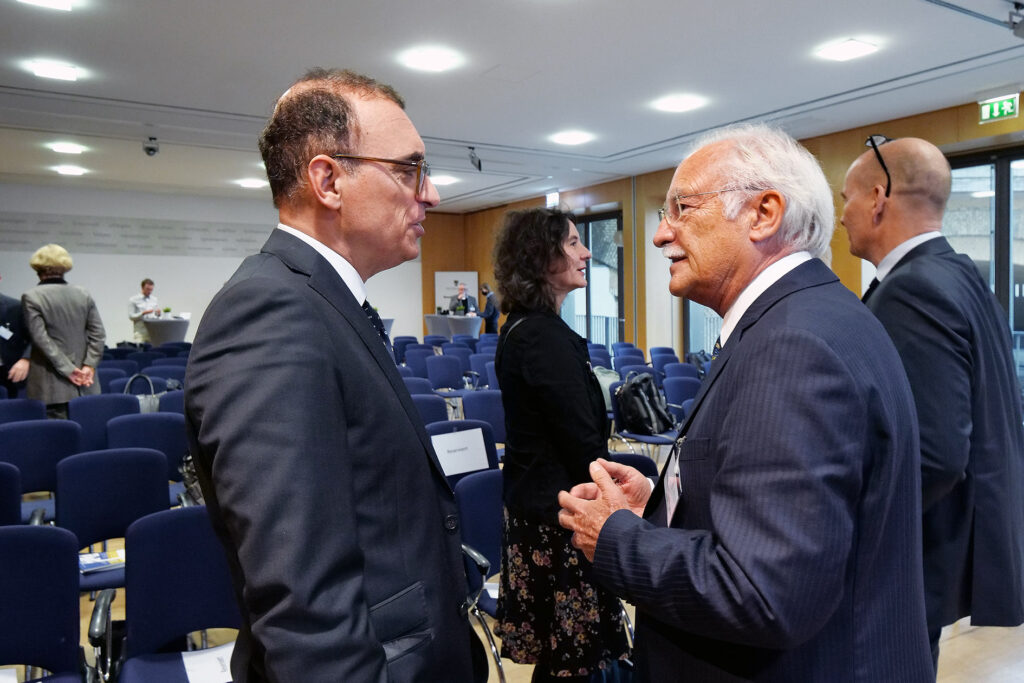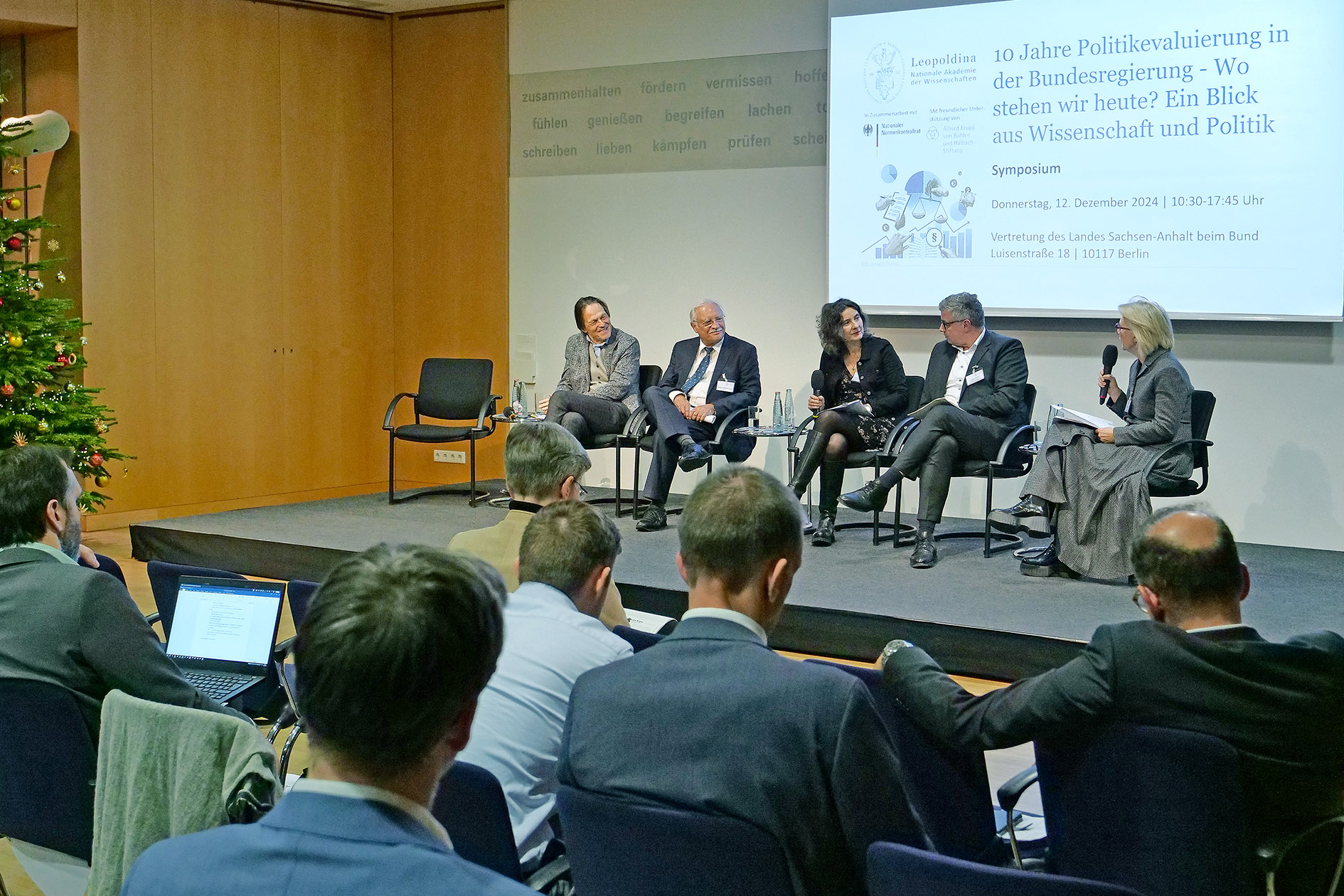On 12 December 2024, the German National Academy of Sciences Leopoldina hosted a symposium titled ‘Ten Years of Policy Evaluation in the Federal Government.’ Ten years after the State Secretary’s decision on the “Concept for the evaluation of new regulatory projects,” the aim was to reflect on German evaluation practice and take a position assessment. Representatives from science and administration came to a rather mixed conclusion. Despite the provisions of the Federal Budget Code and both the state secretary resolutions from 2013 and 2019, only a few ministries carry out evaluations or even use them for political decisions. In addition, the quality of the evaluations carried out often leaves much to be desired.

Prof. Dr. Reinhard Stockmann from CEval was invited to take part in the panel ‘Evaluation’s view of the future – the path to further institutionalization’. He cited five points in particular: (1) Awareness-raising is necessary at all levels in ministries and authorities in order to drive forward the institutionalization of evaluation in Germany. At the top level, in particular, there must at least be an understanding of the performance potential of evaluations. Further points were (2) the existence of an evaluation policy at the national and ministerial level, (3) greater involvement of parliaments, (4) greater interest in evaluation from civil society to put pressure on governments to carry out evaluations, and (5) the creation of a scientific support structure to enable ministries and authorities to not only fulfill their performance monitoring and evaluation obligations through training, handouts, quality assurance, and advisory services but also to use evaluation as a learning tool.
Stockmann pointed out that the Federal Ministry for Economic Cooperation and Development (BMZ) maintains an organization for the evaluation of development cooperation, the German Evaluation Institute (DEval), which has around 120 employees and a budget of 14 million euros.
For the training, advice, and quality control of all other ministries, a competence center has been set up at the Federal Statistical Office, which has three employees who also have other tasks to perform. As not all ministries can afford their own evaluation institute, he called for a reorganization of these asymmetrical structures in order to support all of the ministries in their evaluation tasks. This is an important condition for ensuring that evaluations are carried out competently across the board, at least in those ministries that are convinced of the benefits of evaluations or can be convinced by best practices.

Photos: Rolf Walter





